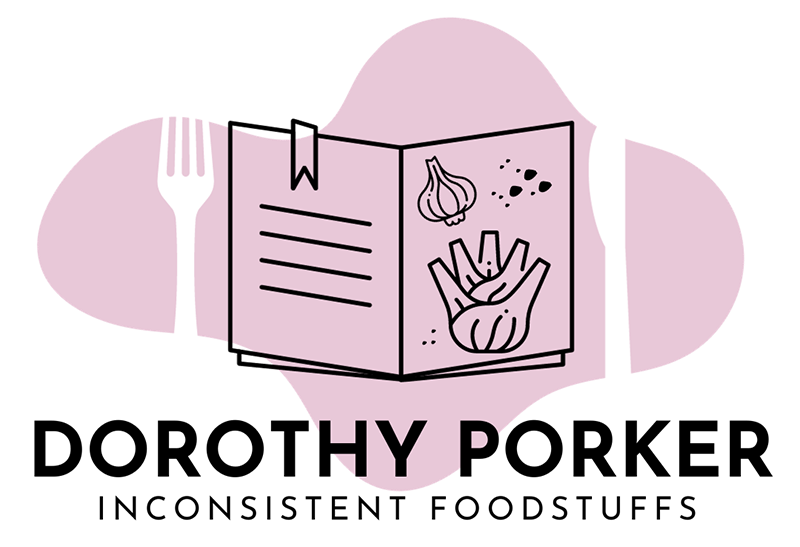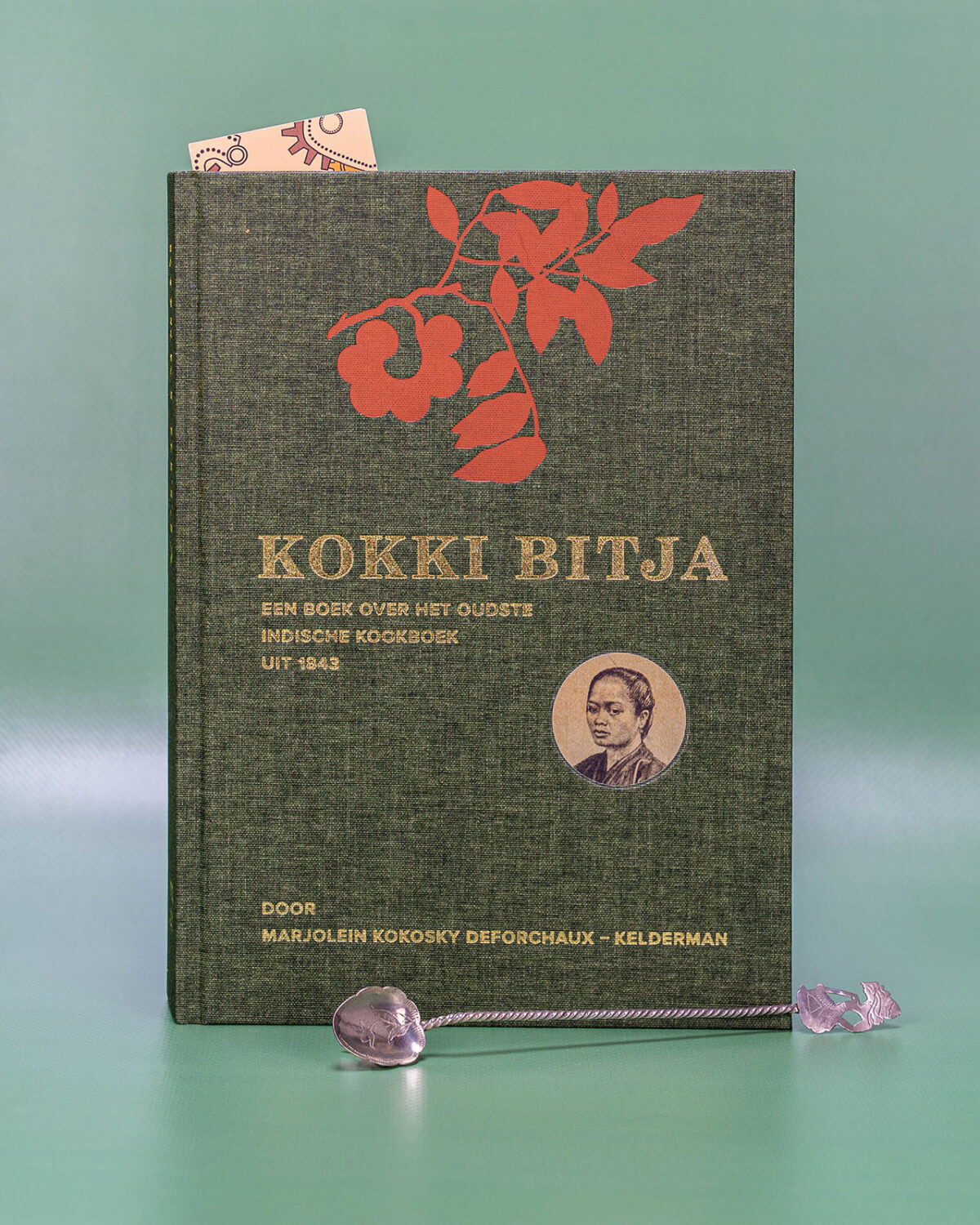In 1843, the first printed Indonesian cookbook appeared in Batavia, in what was then known as Dutch East Indies, now Jakarta, Indonesia. A small book, approximately 13×20 cm, containing 215 recipes, which later became known as Kokki Bitja and was reprinted until 1941. The dishes in the book reflect the cultural diversity of the city of Batavia in the mid-19th century and offer unique insight into the history of Indonesian cuisine.
For seven years, Marjolein Kokosky Deforchaux-Kelderman, who worked as a bookseller in Amsterdam for many years and has been running the renowned Ap Halen take-away in Rotterdam with her husband now for some time, worked on translating the recipes from the first edition from pasar Malay, providing each recipe with a cultural-historical context, supplemented with historical images. She also provides context about the creation of the first and later editions themselves, and this so-called kokki, who was fictional, but did receive an obituary in several newspapers.

Karie Terong Mera in retranslation
In early November of last year, I received an email from Marjolein asking if I would like to collaborate on her project. She wanted to have several recipes retranslated, including one by me. I love reading about Dutch-Indonesian history as well as food culture and history in general, and I knew that the write-up of older recipes can be rather… vague, so this was a perfect fit.
Marjolein sent me a few options. Ultimately, I chose to retranslate karie terong mera, an eggplant dish, which in the original version was written as follows (with an English translation below):
Pake kalapa njanja, koenjit, tjabe, lada, bawang mera, katoembar djientan, djeroek, asam dan ajer santan jang kental; Itoe terong, satoe miestie potong ampat, dan taro katoembar djientan jang soeda di njanja.
Take dry-roasted coconut, turmeric, chili peppers, pepper, shallots, coriander [and] cumin, lime, tamarind, and thick santen; the eggplant should be cut into quarters each, and add coriander [and] cumin that has already been dry-roasted.
In a first test, I added the dry-roasted ingredients to the wet dish, but I wasn’t entirely satisfied. In a second attempt, I made a serundeng from the dry ingredients and sprinkled it over the wet dish. This turned out much better, and that’s the version that is now included in the book.

Kokki Bitja: A Book About the Oldest Indonesian Cookbook
During my last visit to the Netherlands at the end of June, I was finally able to meet up with Marjolein again and actually get my hands on an actual copy of Kokki Bitja: A Book About the Oldest Indonesian Cookbook. It’s an insanely gorgeous book and I have never been more proud to be a part of anything.
The attention to detail is striking; she worked with the designer to find a font that resembled the original font and incorporated type setting errors in the pasar Malay recipes. The book contains various inserts, historical photos and illustrations, and in the back, a number of retranslated recipes. Not only by me, but also by Ellen Nathania Sutekno (currently at Locavore), Candy Fea, Ade Putri Paramadita, Susan Schardijn, Amber Toorop, Santhi Serad, Maureen Tan, and Hedwig Weber. More experienced cooks should be able to follow a large portion of the non-modernized recipes as well.

Want to know more?
Kokki Bitja: a book about the oldest Indonesian cookbook is a self-published book, in a limited print run of 700 copies. You can order it via kokkibitja at gmail dot com; it costs €67.50. Obviously, at the moment it is only available in Dutch, with the original pasar Malay available for the recipes as pictured above.
The NATO summit got in the way of the original book launch. It is now scheduled for September 25th at the KB in The Hague; you can read more about it here. From September 2nd to 28th, there will also be an exhibition about Kokki Bitja at the KB (Dutch national library). Here you’ll be able to see some of the sources Marjolein consulted as well as admire (historical) cookbooks and kitchenware from her own collection.
Indisch or Indonesian?
There is no proper translation for the word ‘Indisch’ in English. The Dutch word ‘Indisch’ can refer to both the culture as well as the people and descendants of the colonial Dutch East Indies, the country now known as Indonesia, in particular those descendants that now live or were born in the Netherlands, like me. As there is no proper word for ‘Indisch’ in English I have chosen to use ‘Indonesian’ in this article instead.


